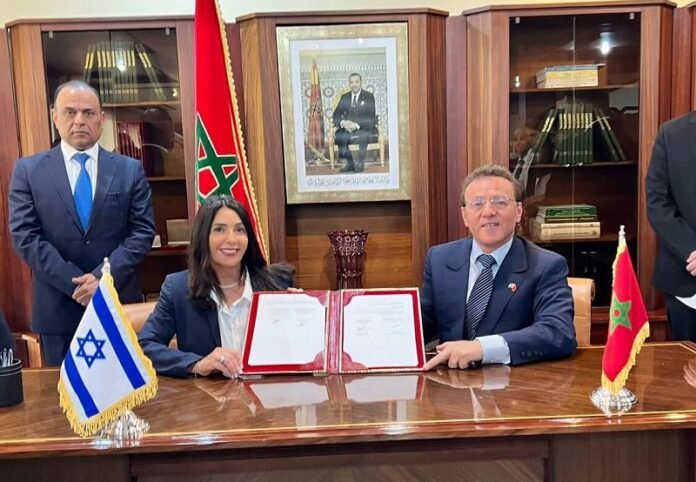In a move that surprised many observers, the Israeli government recently approved a maritime agreement signed with Morocco back in May 2023, which had remained frozen for more than two years. This development comes amid heightened regional tensions and at a particularly sensitive political moment, marked by growing Arab and Islamic outrage over the ongoing war in Gaza.
Is this merely a technical reactivation of a bilateral agreement? Or does it carry hidden political and security messages?
The Agreement’s Content: Ports, Security, and Logistical Cooperation
The agreement, signed in Rabat on May 29, 2023, aims to regulate and strengthen maritime transport between the two countries based on principles of free navigation, fair competition, and mutual cooperation. It covers a range of topics, including maritime safety, port access, taxation, dispute resolution, fees, and pricing.
It also provides for mutual recognition of ship documents, the establishment of representative offices for shipping companies in each country, and the creation of a joint maritime committee to oversee implementation and address relevant issues.
The Central Question: Why Now?
What is puzzling is that although the agreement was signed a few months before the outbreak of the war in Gaza, it only comes into effect now. This raises several questions:
-
Is the timing purely administrative?
-
Or is it a political message from Israel, aiming to signal continuity in regional relations despite growing tensions?
-
Was Morocco consulted before this activation, or was it a unilateral Israeli decision?
Between Maritime Cooperation and Political Ambiguity: Where Does Rabat Stand?
Notably, the Moroccan government has not yet issued any official statement regarding the announcement. Does this indicate tacit approval, or is it a strategic silence aimed at avoiding further escalation in a volatile context?
Thus, a key question arises:
How can Morocco reconcile its international commitments with its historical stance on the Palestinian issue?
Symbolic and Geo-Economic Significance
While the agreement appears technical on the surface, it carries significant symbolic weight. Ports are no longer just commercial platforms — they are strategic tools in international relations.
-
Will we see the launch of direct maritime lines between the two countries?
-
Will these exchanges include dual-use shipments, both civilian and security-related?
-
Is such a dynamic compatible with Morocco’s commitments within the African Union or the Organization of Islamic Cooperation?
Conclusion: Technical Cooperation or Political Test?
On the surface, this appears to be a logistical agreement aimed at facilitating trade. But beneath that, it raises fundamental questions about the nature and limits of cooperation between Rabat and Tel Aviv in a shifting geopolitical landscape.
The essential question remains:
Can Morocco continue to play both roles — as a regional economic actor and as a guardian of the Palestinian cause, particularly through its leadership of the Al-Quds Committee?
In the coming weeks, we may begin to understand the true scope of this agreement — whether it signals deeper normalization or calculated diplomatic caution.


